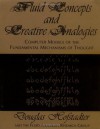251
Followers
4
Following
Manny Rayner's book reviews
I love reviewing books - have been doing it at Goodreads, but considering moving here.
Currently reading
The Greatest Show On Earth: The Evidence For Evolution
R in Action
Fluid Concepts and Creative Analogies
McGee on Food and Cooking: An Encyclopedia of Kitchen Science, History and Culture
Epistemic Dimensions of Personhood
Pattern Recognition and Machine Learning (Information Science and Statistics)
Relativity, Thermodynamics and Cosmology
The Cambridge Handbook of Second Language Acquisition
 This daring, ground-breaking, iconoclastic anthology, edited by the great Harlan Ellison, came out in 1967. He encouraged the contributors to push the boundaries, expand the envelope, think the unthinkable and mention sex, religion, politics, sex, sex, and things like that. You know, the kind of stuff you wouldn't normally find in a short story that had passed John W. Campbell's desk on its way to a million pimply teenage SF fans. (Disclaimer: I was one of those fans, even though I wasn't quite a teenager yet).
This daring, ground-breaking, iconoclastic anthology, edited by the great Harlan Ellison, came out in 1967. He encouraged the contributors to push the boundaries, expand the envelope, think the unthinkable and mention sex, religion, politics, sex, sex, and things like that. You know, the kind of stuff you wouldn't normally find in a short story that had passed John W. Campbell's desk on its way to a million pimply teenage SF fans. (Disclaimer: I was one of those fans, even though I wasn't quite a teenager yet).So, here's one of the shocking, out-of-the-box stories in the collection. It's called Eutopia, and it's a parallel world yarn in which the classical Greeks kept their role as the dominant society on Earth. The hero is this classical Greek guy who's visiting a primitive outpost, and he's got himself into trouble by sleeping with someone he shouldn't have. He's running for his life, making for his time machine or portal or whatever it is so that he can get back home, and thinking that he ought to have had more sense. Why ever did he get involved with this backwoods hick when his lovely Nikki was there at home patiently waiting for him? Now, you'll have guessed there's a twist, and what a twist it is! Wait for it... are you ready... it turns out that Nikki is... A BOY!!! Gasp! Well, those classical Greeks were like that, don't you know?
I thought of this story several times this week while reading Marguerite Yourcenar's Mémoires d'Hadrien, a meticulously accurate reconstruction of the Emperor Hadrian's life which came out sixteen years before Dangerous Visions was published. Yourcenar takes it for granted that Hadrian, like pretty much everyone else of his class and era, was bisexual. She somehow pulls off the amazing feat of presenting his feelings for beautiful young boys in his own terms, without in any way judging him by twentieth century standards. The affair with Antinoüs is one of the most moving sequences in the book.
I can't help feeling there's a moral here. Any suggestions?











